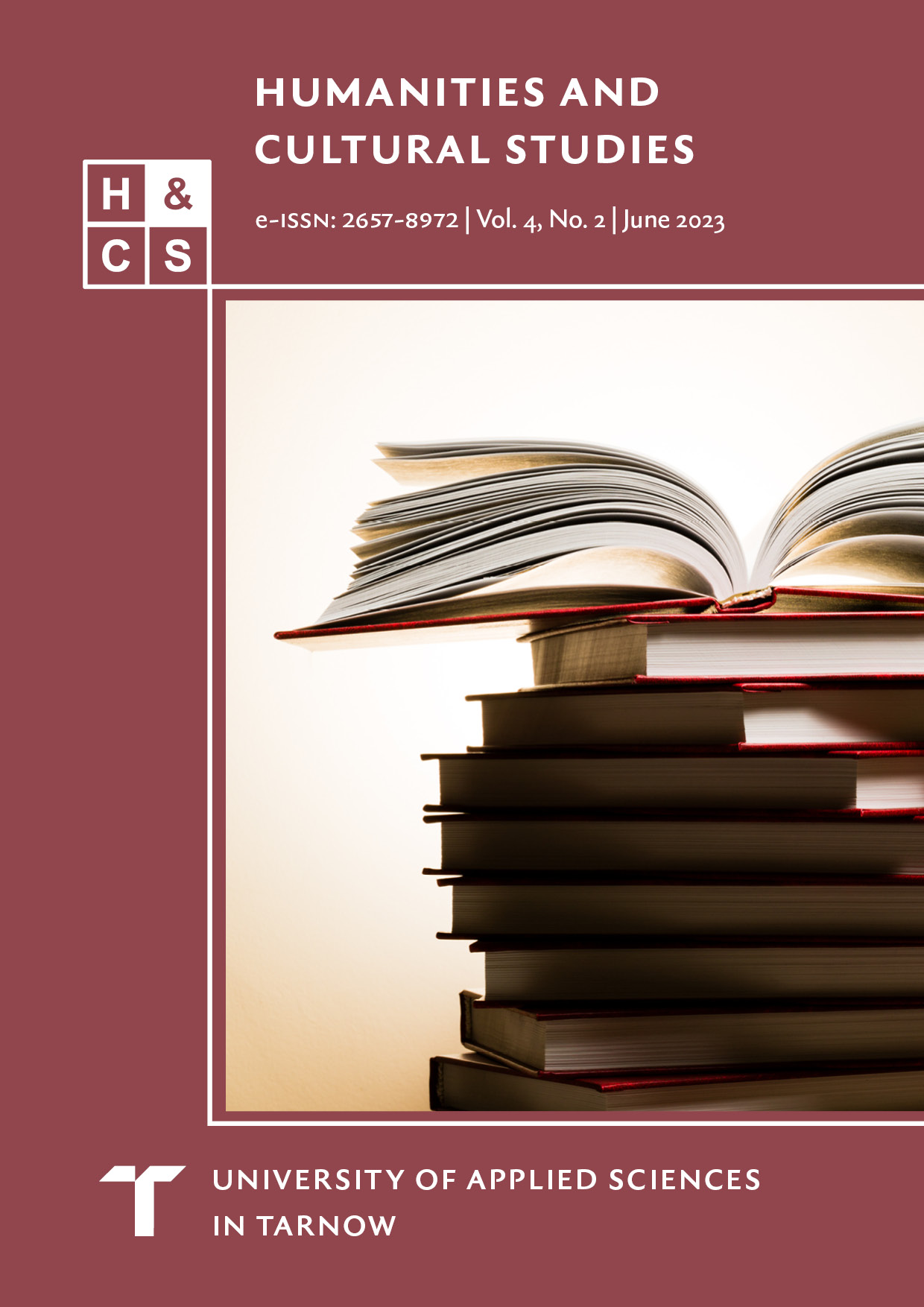The discipline of possibility
The role of coincidence in shaping the 20th century artistic identity
DOI:
https://doi.org/10.55225/hcs.533Keywords:
chance, discipline of chance, art, artistic creationAbstract
Chance/coincidence plays a significant, albeit implicit, role in artistic creation. One searches in vain for mentions of it in artists' biographies or chronicles of their works. Most often passed over in silence, it remains the great absentee of artistic creation. Western culture has pushed him outside the walls of the temples of art. After all, art is the work of genius, not chance.
For this reason, among others, the study of chance in artistic creation must be circumstantial and based on reading about what the sources are silent about, for little is said explicitly about chance. And yet, can chance be harnessed and made to assist in the creation of works and the invocation of further opuses? Can chance be disciplined so that it becomes a tool in the hands of the creator?
The aim of this article is to attempt to describe the role of chance in artistic creation in the 20th century. The work will be based on both biographical documentation and analysis of individual artistic practices. Coincidence as a creative method can be not only a tool in the hands of the artist, but also one of his artistic techniques.
Downloads
References
Action painting, [w:] ENCENC: encyklopedie humanistyczne, 2017, https://encenc.pl/action-painting [dostęp: 21 maja 2023 r.]. Google Scholar
Brecht G., Chance imagery, red. M. Tencer, Dijon 2004. Google Scholar
Chołoniewski M., John Cage Silence, http://sme.amuz.krakow.pl/cageconf/wp-content/uploads/2012/10/Marek-Choloniewski-Silence.pdf [dostęp: 21 maja 2023 r.]. Google Scholar
Chwiejda E., Dadaizm jako reakcja na upadek kultury europejskiej i pierwszą wojnę światową, https://hi-storylessons.eu/pl/culture/dadaizm-jako-reakcja-na-upadek-kultury-europejskiej-i-pierwsza-wojne-swiatowa/ [dostęp: 21 maja 2023 r.]. Google Scholar
Coincidence, [w:] Online Etymology Dictionary, https://www.etymonline.com/search?q=Coincidence [dostęp: 21 maja 2023 r.]. Google Scholar
Dolewka M, Rola przypadku w twórczości Witolda Lutowsławskiego. W nawiązaniu do myśli Michała Hellera, „Racjonalia. Z punktu widzenia humanistyki” 2013, nr 3, s. 98–114, https://doi.org/10.15633/r.268. DOI: https://doi.org/10.15633/r.268 Google Scholar
Eco U., Dzieło otwarte: forma i nieokreśloność w poetykach współczesnych, Warszawa 2008. Google Scholar
Heller M., Filozofia przypadku: kosmiczna fuga z preludium i codą, Kraków 2014. Google Scholar
Iłenda J., Odo Marquarda apologia przypadkowości, „Kultura Współczesna. Teoria, Interpretacje, Praktyka” 1996, nr 1-2 (9-10), s. 178–185. Google Scholar
The Japanese artist Katsushika Hokusai Old Man Crazy to Paint BC Documentary 2017, YouTube, 2017, https://www.youtube.com/watch?v=bbt3FSuPSjo [dostęp: 27 maja 2023 r.] Google Scholar
Jernajczyk J., Portrety Przypadku, „Racjonalia. Z punktu widzenia humanistyki 2013, t. 3, s. 5–20, https://doi.org/10.15633/r.263. DOI: https://doi.org/10.15633/r.263 Google Scholar
Karpow A., Assemblage, environments and happenings, [w:] Chance, red. M. Iversen, London—Cambridge 2010. Google Scholar
Assemblages, Environments and Happenings, [w:] The Twentieth Century Performance Reader, red. T. Brayshaw, N. Witts, 3rd ed., London—New York 2014. Google Scholar
Koschany R., Przypadek: kategoria egzystencjalna i artystyczna w literaturze i filmie, Wrocław 2006 r. Google Scholar
Kosińska M., Ciało filmu: medium obecnego w powojennej amerykańskiej awangardzie filmowej, Poznań 2012. Google Scholar
Kumaniecki K., Słownik łacińsko-polski: według słownika Hermana Mengego i Henryka Kopii, wyd. 18, Warszawa 1990. Google Scholar
Lutosławski W., Zapiski/ Witold Lutosławski, opr. Z. Skowron, Warszawa 2008. Google Scholar
Mallarmé S., Rzut kośćmi nigdy nie zniesie przypadku, red. K. Bazarnik, Z. Fajfer, tłum. T. Różycki, 2005, http://archiwum.ha.art.pl/wydawnictwo/katalog-ksiazek/193-stephane-mallarme-rzut-koscmi-nigdy-nie-zniesie-przypadku.html [dostęp: 21 maja 2023 r.]. Google Scholar
Marquard O., Apologia przypadkowości: studia filozoficzne, tłum. K. Krzemień-Ojak. Warszawa 1994. Google Scholar
Morse B.R., Indeterminacy, the I Ching, and John Cage: A New Design Method for Landscape Architecture, [praca magisterska], University of Arizona, Tucson 2007. Google Scholar
Paja-Stach J., Dzieła otwarte w twórczości kompozytorów XX wieku, Kraków 1992. Google Scholar
Pałasiński P., Amor fati Fryderyka Nietzschego (konieczność i przypadkowość losu człowieka), „Racjonalia. Z punktu widzenia humanistyki” 2013, t. 3, s. 35–56, https://doi.org/10.15633/r.265. DOI: https://doi.org/10.15633/r.265 Google Scholar
Przypadek, [w:] Wikicytaty, https://pl.wikiquote.org/wiki/Przypadek [dostęp: 18 kwietnia 2023 r.]. Google Scholar
Rakoczy M., Pisanie automatyczne, czyli o trudnych związkach awangardy z nowoczesnością, „Zagadnienia Rodzajów Literackich” 2019 , nr 2, s. 115–128, https://doi.org/10.26485/ZRL/2019/62.2/7. DOI: https://doi.org/10.26485/ZRL/2019/62.2/7 Google Scholar
Rasula J., Dada po dada, tłum. E. Frelik, „Dekada Krakowska” 2017, nr 6 (34), s. 6–13. Google Scholar
Richter H., Dada, Art and Anti-Art, tłum. D. Britt, New York 1965. Google Scholar
Schopenhauer A., Czworaki korzeń zasady racji dostatecznej, tłum. J. Marzęcki, Kęty 2003. Google Scholar
Sheppard R., Dadaizm, modernizm, postmodernizm, tłum. J. Parniewska, „Dekada Krakowska” 2017, nr 6 (34), s. 14–22. Google Scholar
Śniedziewski P., „Rzut kośćmi” Mallarmégo — od oralnej metafory milczenia do piśmiennej metafory bieli, „Teksty Drugie. Teoria literatury, krytyka, interpretacja” 2010, nr 1–2, s. 193–207. Google Scholar
Taborska A., Ptak Przełożony Max Ernst, „Tygodnik Powszechny” 2013, nr 28 (dodatek), https://www.tygodnikpowszechny.pl/ptak-przelozony-max-ernst-19907, [dostęp: 27 maja 2023 r.]. Google Scholar
Wołek M., Początki kategorii przypadku w sztuce, „Folia Philosophica” 2016, t. 36, s. 79–89. Google Scholar
Downloads
Published
How to Cite
Issue
Section
License
Copyright (c) 2023 Marcin Oleś

This work is licensed under a Creative Commons Attribution-NonCommercial 4.0 International License.





